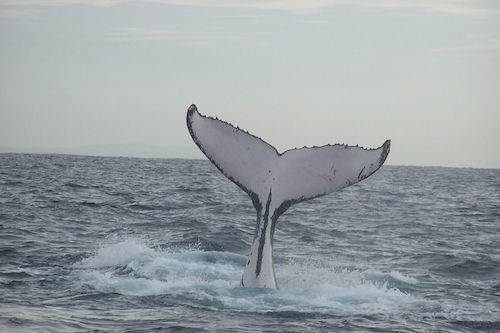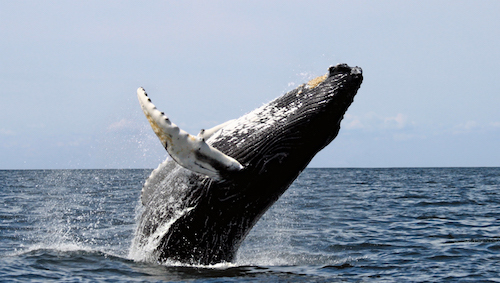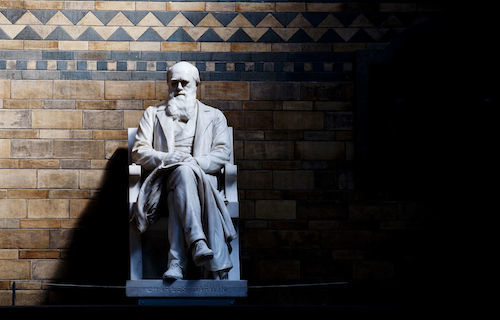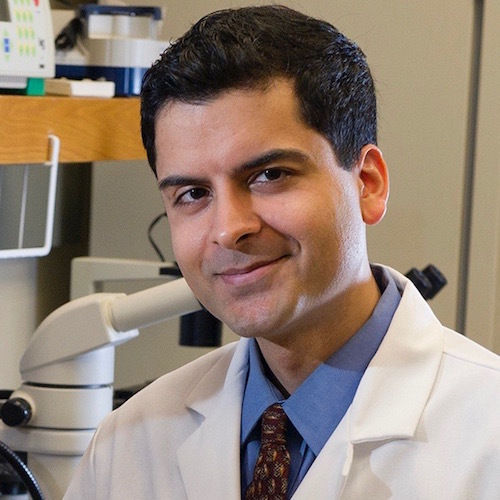Discovery Institute's Blog, page 11
January 12, 2017
Jonathan Wells on Whale Evolution and a "Materialistic Creation Story"

On a new episode of ID the Future, Discovery Institute biologists Jonathan Wells and Ray Bohlin round out a really interesting series on the challenge to Darwinism from the enigma of whale evolution.
Download the episode by clicking here:
In the context of whales, the fossil evidence and genetic evidence alike are fatal to traditional Darwinian accounts, while gesturing to intelligent design as a more plausible alternative. Whales in current thinking may have made the transition to a fully...
January 11, 2017
Summer Seminars on Intelligent Design Offer the Opportunity to Join the World of ID Scholarship
You can spend hours reading about intelligent design, its arguments and evidence, but there's no substitute for personal interactions with the top scholars in the field. That's especially true for rising scientists and scholars interested in advancing ID-related research themselves.
That's why each year the Center for Science & Culture offers the Summer Seminars on Intelligent Design. Intended primarily for college undergraduates (juniors and seniors) and graduate students, the Summer Semi...
Darwin's Proposed Bear-to-Whale Transition Set Off Bull Detectors in 1859

In the first edition of the Origin of Species, Darwin speculated that something like a whale might have evolved from a bear, whose mouth expanded in order to catch insects, followed presumably by other adaptations to render a fully aquatic mammal. This bear-to-whale transition set off bull detectors among Darwin's readers, who roundly mocked for it, leading the author to delete the speculation from future editions.
Today, scientists and science consumers must be less sensitive to BS, to fake...
These Fish Have Nose Turbines

We see turbines in wind farms, in generators, and in jet engines. Run a Google search on "turbine" and look at the images. You can't find any that look like random accidents. Instead, almost as a rule, they appear downright elegant, highly sophisticated, and complex. Well, here's a "turbine" inside the nose of a tiny fish. It is no exception.
In Current Biology, a dozen researchers from Europe and Japan tell an amazing story about what they found in four-day-old zebrafish larvae. They actual...
January 10, 2017
Darwin, Marx, and Freud: The Genealogy of "Posthumanism"

Wesley Smith points out the simultaneously vapid and dangerous musings of Rice University scholar Cary Wolfe on "posthumanism." That is the idea that we can and should progress beyond the ancient understanding that something fundamental separates human beings from other creatures and from the rest of nature.
Where does posthumanism come from? Wolfe is admirably frank about its "genealogy":
There is, in fact, a genealogy of posthumanist thought that stretches back well before the 21st or even...
Now It's "Posthumanist Ethical Pluralism"

The New York Times continually publishes opinion pieces and news articles aimed at undermining human exceptionalism and the understanding that we have the highest moral value.
This is exceedingly dangerous. If human life doesn't have the highest ultimate objective value simply and merely because it is human -- an equal value to be distinguished from all other life forms on the planet -- there is no way to philosophically defend universal human rights.
Moreover, if we can't distinguish betwee...
Self-Replicating Droplets: Evidence or a Shot in the Dark?

When scientists judge explanations for the origin of life that employ strictly chemical means, the evidentiary bar often seems notably low. For example, consider a new article on the Chemistry World website, published by the Royal Society of Chemistry. It claims, "Key riddle of life's origin may be answered by primitive protocells that can divide," and references a study in Nature Physics.
Generally, chemical evolution theorists assume that three components must have been necessary for the...
Cornell Researchers Find Another Epigenetic Code that Affects Messenger-RNA Productivity

"Research reveals codes that control protein expression." That's the attention-getting headline of an article at the Cornell Chronicle. Researchers from Weill Cornell Medicine led by Dr. Samie Jaffrey found another signaling system that predetermines how much protein a transcribed gene should generate.
The findings may settle a fundamental question in molecular biology -- how the amount of protein generated from a messenger RNA (mRNA) is determined -- and could help scientists develop new th...
January 9, 2017
Platonic Forms and Aristotelian Teleology: Let's Explore the Philosophical Roots of Intelligent Design
Editor's note : We are delighted to welcome Walter Myers III as a new contributor. He has had a long career as an architect and project lead for one of the world's largest software companies, located in Redmond, WA. He studied philosophy at Biola University's Talbot School of Theology under J.P. Moreland, Gary DeWeese, as well as John Bloom, Paul Nelson, and Cornelius Hunter. After receiving an MA in philosophy, he joined the program as an adjunct.
I am glad to take this opportunity to introd...
January 8, 2017
Treating the "Patient as a Person"

Stopping life support so natural death can come is a normal part of health care. We all have the right to refuse medical interventions even if it is likely to lead to death. As the great bioethicist Paul Ramsey put it when he led the movement to obtain that right, not forcing tubes and drugs into an unwilling person is to treat the "patient as a person."
Moreover, in the 1976 Karen Ann Quinlan case, New Jersey's Supreme Court ruled that removing a respirator at the request of an unconscious...
Discovery Institute's Blog
- Discovery Institute's profile
- 15 followers






